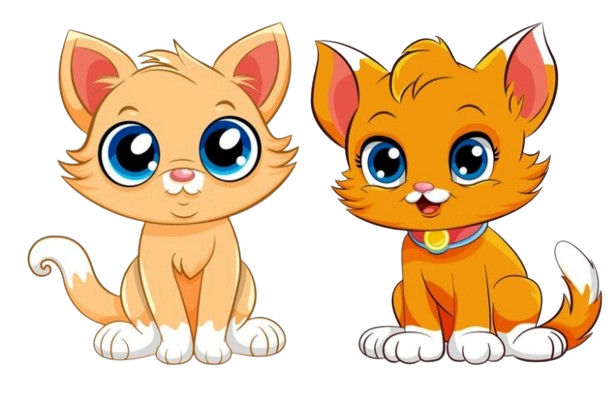
Don Sphynx Cat
History
The hairless breed of cats of the Don Sphynx, unlike the
conventional wisdom, was not artificially bred. These animals appeared as a
consequence of chance - an ordinary street cat with a woolen cover, missing
almost completely, was found in Rostov-on-Don. Actually, the name directly
indicates the place where the rock of the Don Sphynx originated.
Breeder Elena Kovaleva just walked down the street, and
quite by chance saw a kitten girl with a turtle color. She called her Barbara.
At first, Kovaleva did not think about the breeding program, however, after the age of 4 months Varvara began to rapidly fall out of the wool, because of
which she became bald, the opinion changed.
In a detailed study, it became obvious that the lack of wool
is not a consequence of skin disease. Varvara crossed with the usual
short-haired cat and received the same kittens, which after 4 months rapidly
lost their hair.
This meant that the gene was dominant, not recessive, which
meant no connection with Canadian sphinxes There was none. All modern
representatives of the Don Sphynx breed are descendants of these kittens,
received from the cat Varvara.
The Don Sphynx was first officially recognized by the World
Cat Federation (WCF) in 1997 and then by the International Cat Association
(TICA) in 2005.
Characteristics of the breed
Adaptability 08/10
Attachment to the
family 10/10
Gaming
activity 08/10
intelligence 08/10
General
health 03/10
Wool fallout 01/10
Friendliness to
children 07/10
Friendly to dogs 08/10
Love for meows 05/10
Breed information
|
The Origin |
Russia |
|
lifetime |
11-13 years old |
|
size |
Average |
|
weight |
Cats: 4-5.5 kg, Cats: 2.5-4.5 kg |
|
The type of wool |
Hairless |
|
Color |
any colors and drawings |
|
lifestyle |
indoors |
|
price |
|
Description
The Don Sphynx is an extraordinary cat in every way. He has
a very unusual appearance, requires specific care, but gives a huge amount of
love and affection to his family. He is in dire need of attention and kindness,
but he gives them more than.
The Don Sphynx has a wedge-shaped muzzle with wrinkles,
triangular ears slightly longer than the middle, almost no mustache and
eyebrows, and those that are, twisted in funny curls. The body and paws are
elongated, which gives the impression of some alien grace, which emphasizes the
mystical appearance of the eye. The lifespan of these cats is about 13 years.
Personality
Despite the unusual appearance, the Don Sphynxes have a very
kind and affectionate character. They are in great need of human affection and
attention, sometimes down to obsession. This, in turn, creates certain
limitations and nuances.
In particular, such a cat can not leave for a long time
alone, not to mention to go on vacation and not take it with him. This can
cause a pet serious mental anguish, as a result - neurotic disorders.
Perhaps the problem is not absolute, but you need to be
careful with the psyche of the Don Sphynx. They are excellent for children, who normally perceive strangers and other pets. Active, love games, easily
accustomed to the tray, can walk on a leash, and even perform simple commands.
Common Diseases
This breed can not be classified as healthy, as it has
various problems, and some of them are related to the psyche of the animal.
Others, on the contrary, have nothing to do with the psyche or genetic
tendencies, but arise from insufficient quality care. Usually, it is a variety
of skin irritations that can significantly complicate the life of a pet.
Skin irritations can be caused by allergies - Don's sphinxes
are known allergies, due to the presence of glycoprotein in saliva and lack of
wool. But there are a number of diseases, in particular, this:
- acne (acne);
- ezlovato-cystic acne;
- Sonic dermatitis;
- lichen or dermatophyte.
The breed of Don Sphynx is predisposed to eye diseases,
namely:
- To different inflammatory processes;
- corneal ulcer;
- conjunctivitis;
- sclerite.
With almost no coordination of movements at a very early age
in kittens, they can injure the eyes at the first attempt to master the world
around them.
Also, you may come across such congenital health problems of
the pet:
- carp bite (shortened lower jaw) - bite anomaly.
- microfilm - incorrect eye development;
- curvature and softening of the tail vertebrae;
- hyperplasia nipple in the Don Sphynx - transmitted by the mother line.
Care
As you probably understood from the previous section, the
breed of cats Don Sphynx needs special care, despite the lack of wool. The eyes
of kittens need regular examination. Remove lint and mucus from them, and wash
with antiseptic.
The skin and folds in particular are very sensitive, in
addition, sweat is released on the skin. You need to regularly wipe the skin
with a damp cloth and bathe the cat at least once a week. Brown plaque,
sometimes appearing on the skin, can speak of errors in the diet of the animal.
You also need to brush your teeth, at least 2-3 times a week, prune the claws
as needed and clean the inner surface of the ears from sediment and dirt.


